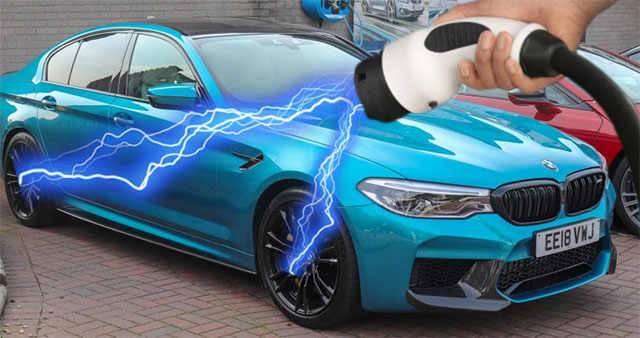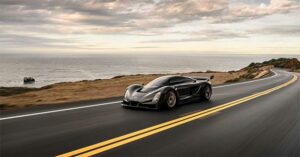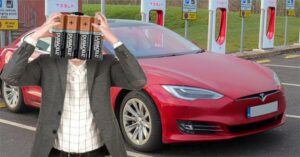
The electric car market is witnessing unprecedented growth. While Tesla remains the dominant player, traditional car manufacturers like Mercedes, Volvo, Toyota, Ford, and particularly BMW are poised to challenge Elon Musk and his team’s leadership position with their serious and significant entry into the market.
The famous German car manufacturer is rumored to be putting the finishing touches on a fully electric M5 sedan. This model will feature a unique setup with three powerful engines – two in the rear and one in the front. Each engine will have a maximum power output of 250kW, resulting in a combined capacity of 750kW, which is equivalent to an impressive 1,006 horsepower. With this astounding power, the electric M5 is capable of accelerating from 0 to 100 km/h in just 2.9 seconds, making it a formidable competitor for all current high-performance petrol-fueled hypercars.

BMW asserts that the M5 model can achieve an impressive range of 435 miles (approximately 700km) with a single full charge by utilizing pocket batteries, instead of the more common cylindrical cell systems employed by Tesla. However, it is important to acknowledge that this figure is purely indicative, as real-world conditions often vary significantly from the controlled testing environments conducted by manufacturers.
The battery that BWM equips on the M5 has a capacity of 135kW and is capable of charging at 350kW. However, currently, there are only nine 350 kW charging stations worldwide, mainly scattered in the UK and Ireland, according to Zap-Map.
The aforementioned features highlight that the electric M5 model is not just an eco-friendly car, but also a strategic offering from BMW in the electric vehicle market. It is designed to compete directly with rival models, particularly the Tesla Model S, which has been the top-selling electric sedan worldwide for several years.
It is captivating to witness the competition between formidable electric supercars unfold. Both BMW and Tesla possess ample financial and technical capabilities to produce exceptional vehicles. The ultimate outcome of this battle is likely to be determined by key factors like charging speed, battery longevity, construction quality, and the overall driving experience of the car.
BMW Group made the decision earlier this year to remove several well-loved and iconic diesel engines from production. This choice was prompted by the introduction of new emissions regulations in the European Union. However, it also grants the manufacturer additional resources to prioritize and invest in the development of their electric motor division.
There were concerns among many people about the electric car industry becoming monotonous and unexciting due to Tesla’s dominant position. However, with BMW and other well-established car manufacturers entering the market, the competition is set to intensify in the coming years. This ultimately benefits consumers as they will have a wider range of options to choose from.
- This portable electric chair can reach speeds of 40km/h


